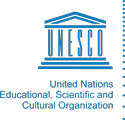2016. 9 p.
Periodical title:
PLoS Med 13(2): e1001962
Description:
Summary Points: There is an absence of guidance, facilities, and materials for schoolgirls to manage their
menstruation in low- and middle-income countries (LMICs). Formative evidence has raised awareness that poor menstrual hygiene management (MHM) contributes to inequity, increasing exposure to transactional sex to obtain sanitary items, with some evidence of an effect on school indicators and with repercussions for sexual, reproductive, and general health throughout the life course. Despite increasing evidence and interest in taking action to improve school conditions for girls, there has not been a systematic mapping of MHM priorities or coordination of relevant sectors and disciplines to catalyze change, with a need to develop country-level expertise. Columbia University and the United Nations Children's Fund (UNICEF) convened members of academia, nongovernmental organizations, the UN, donor agencies, the private sector, and social entrepreneurial groups in October 2014 (“MHM in Ten”) to identify
key public health issues requiring prioritization, coordination, and investment by 2024. Five key priorities were dentified to guide global, national, and local action.
Themes:
Resource types:
Keywords:
Languages:
Record created by:
IIEP


